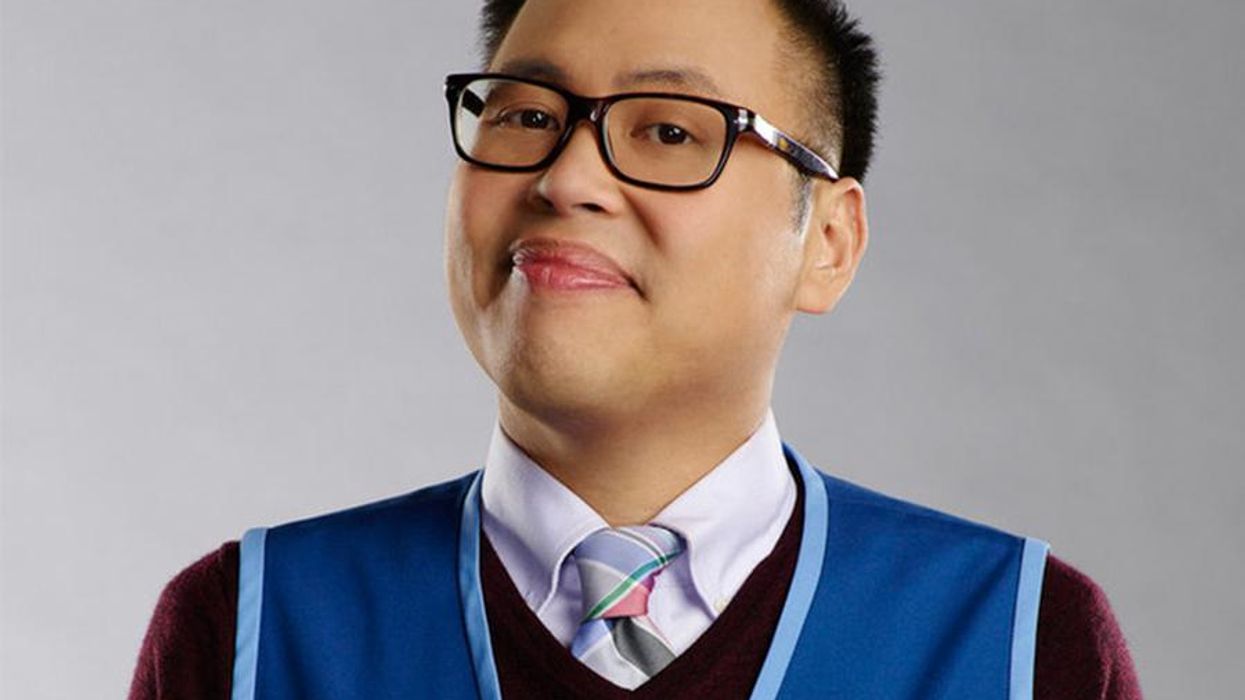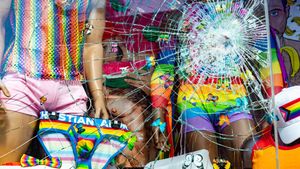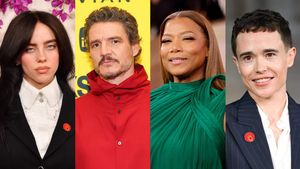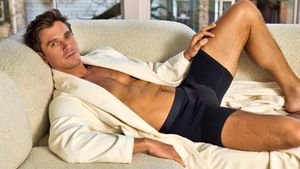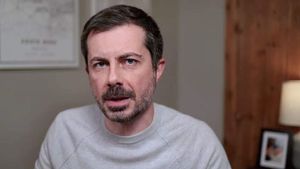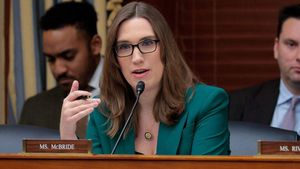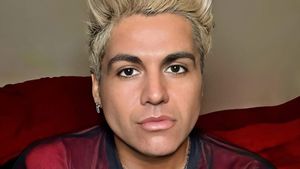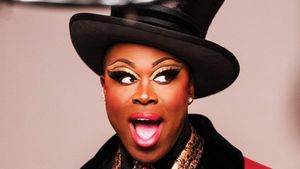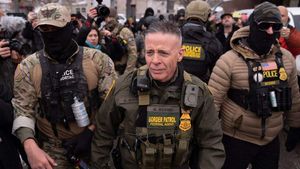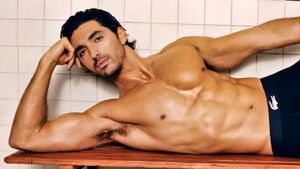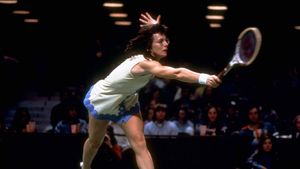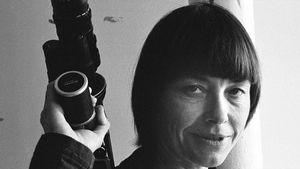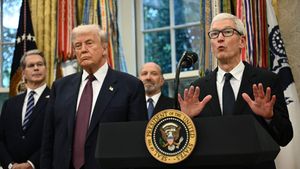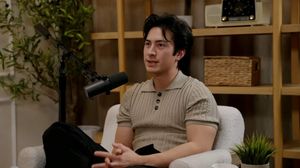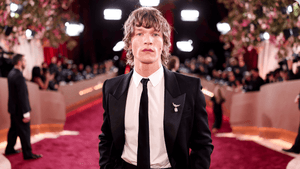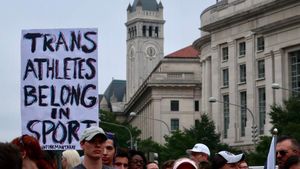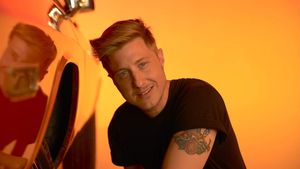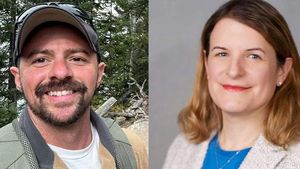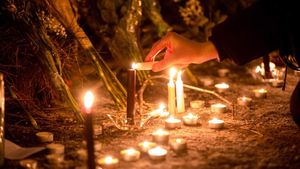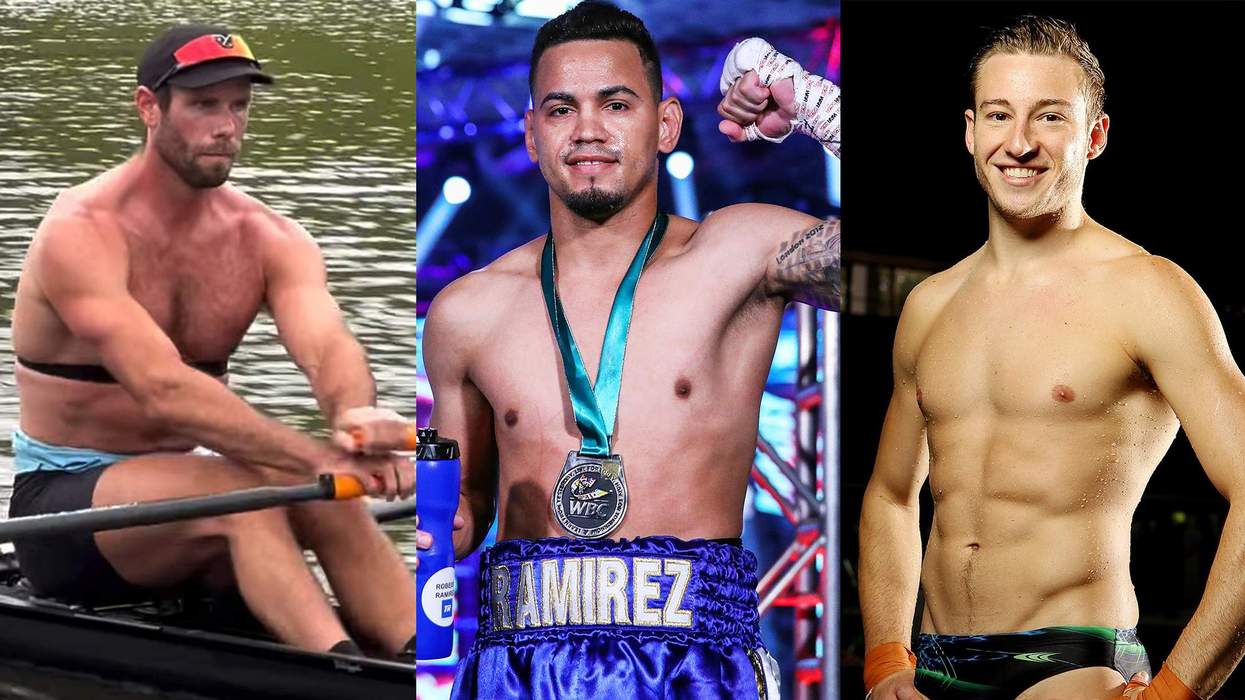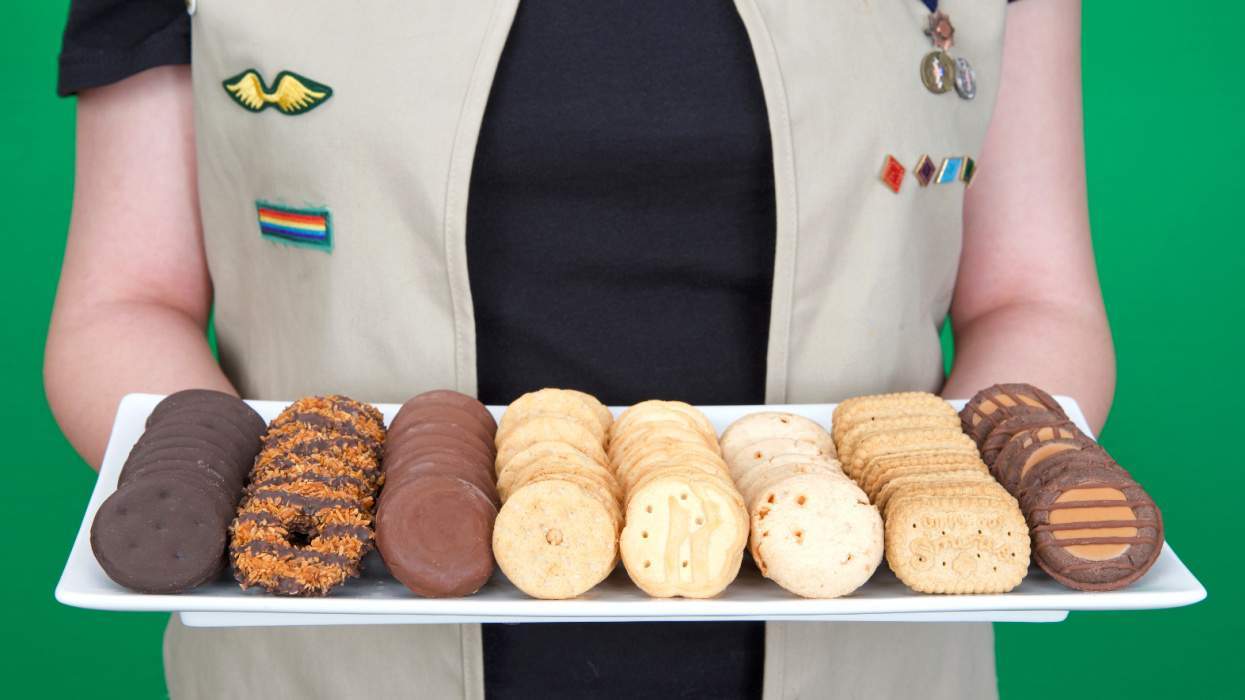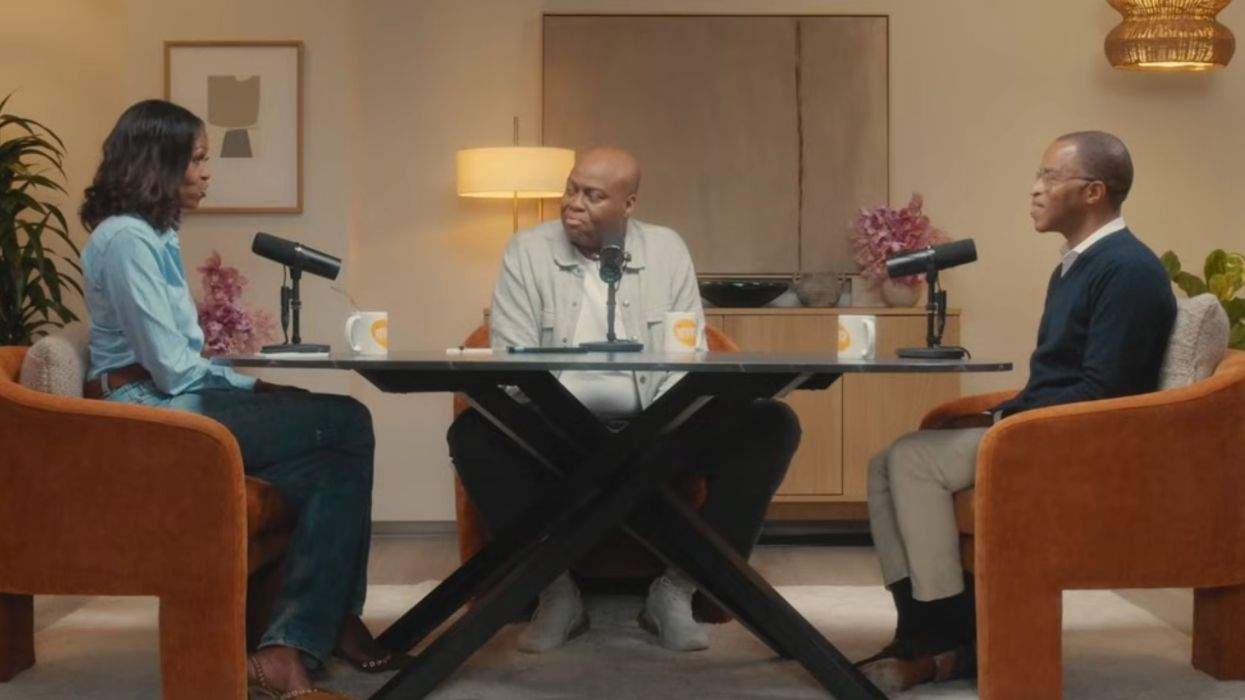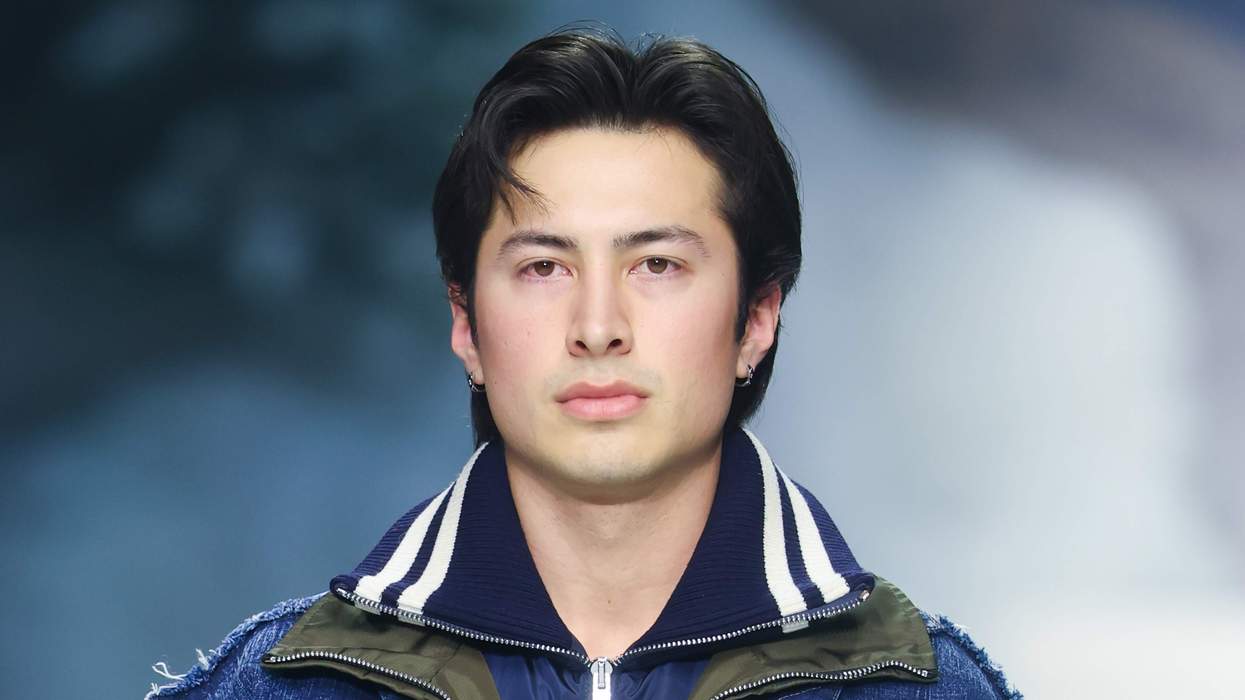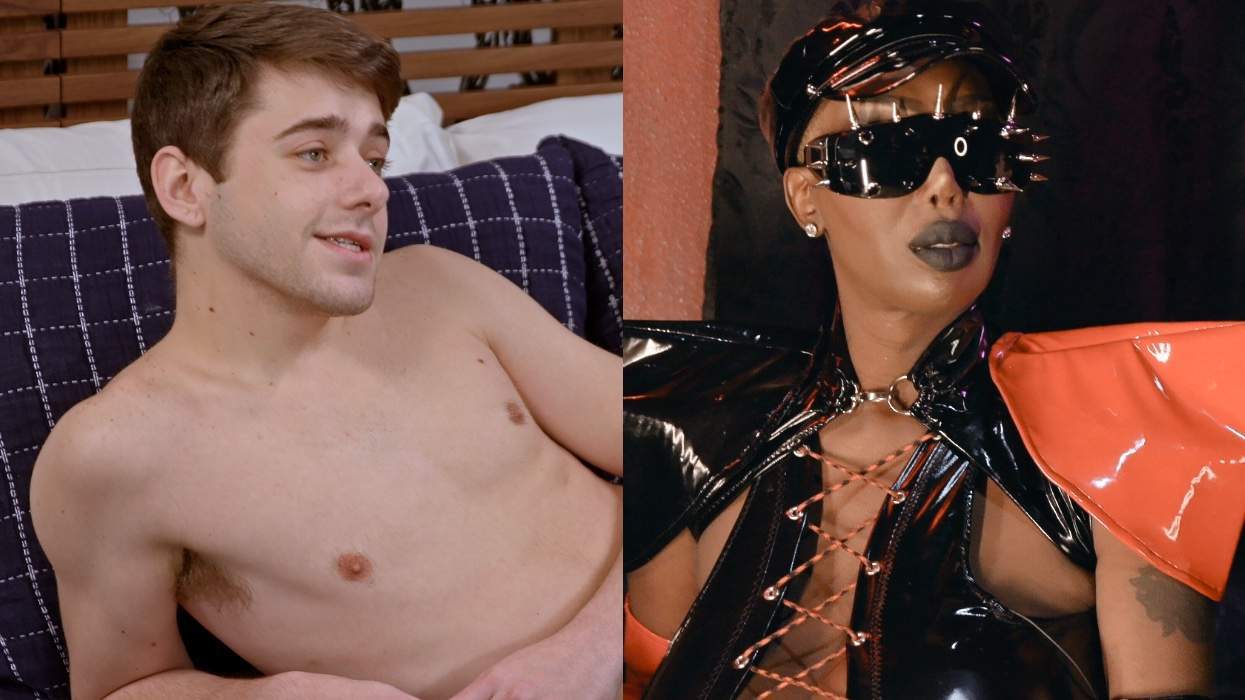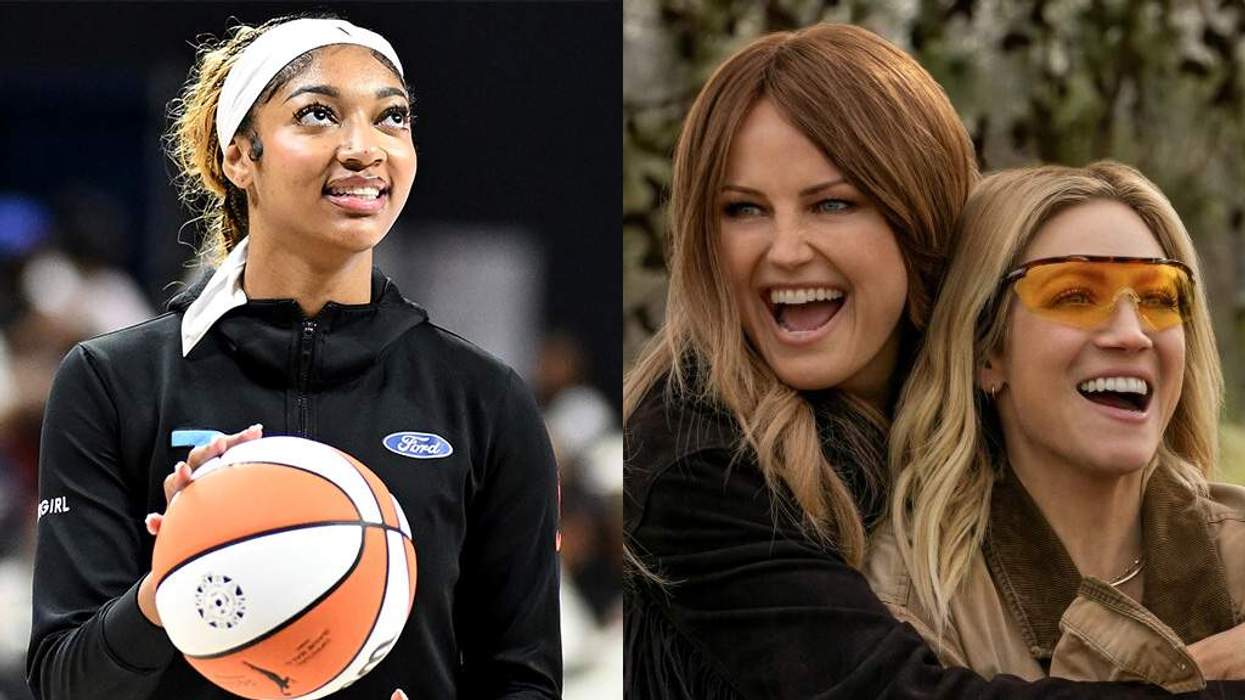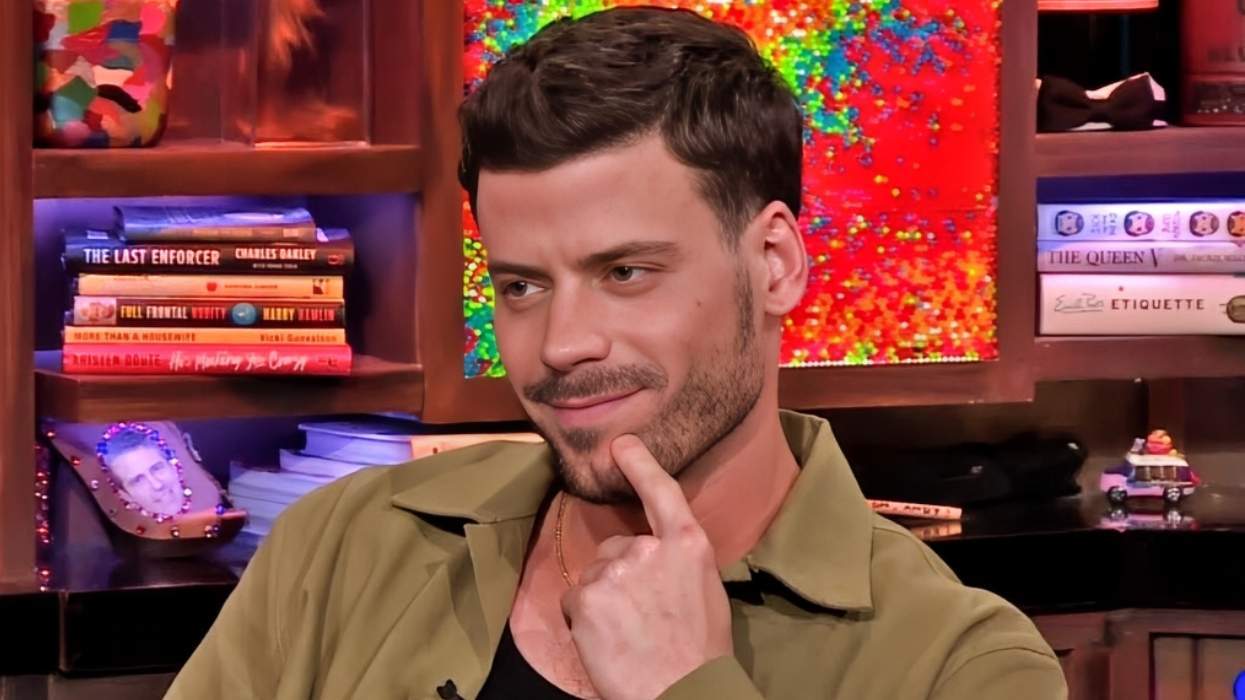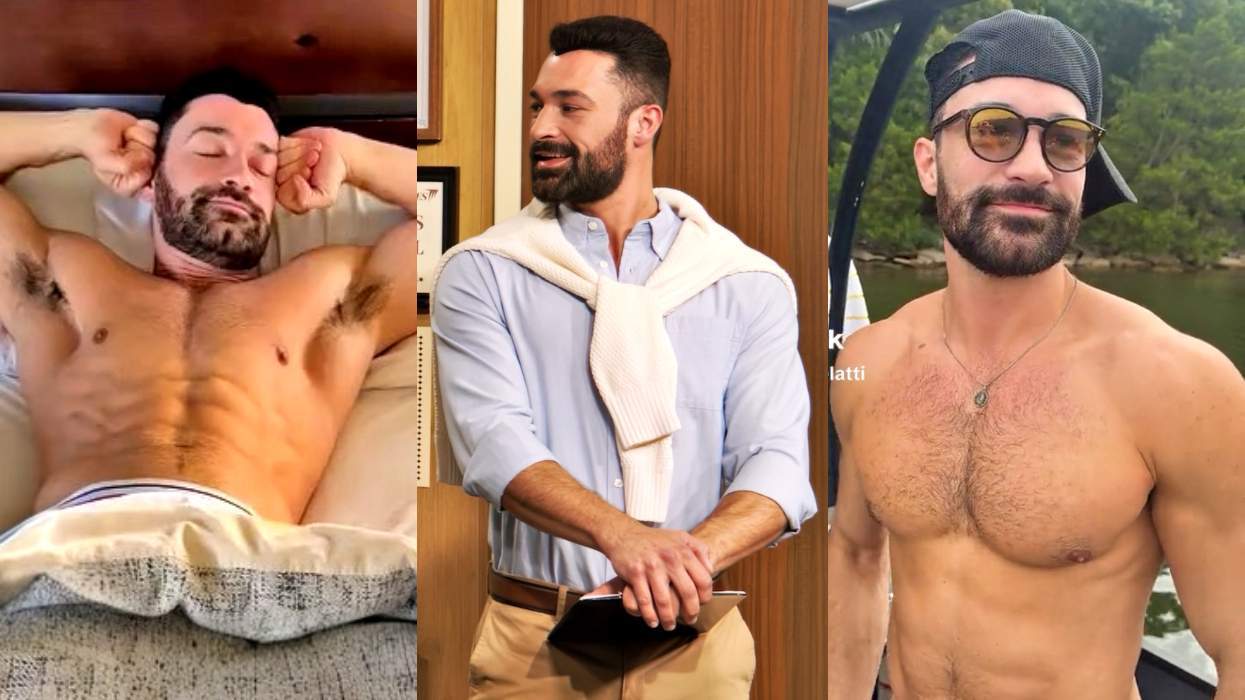NBC's Superstore returns to the small screen for its second season tomorrow, and besides being one of the funnier new shows to premiere in quite some time, the America Ferrera-led sitcom is also praised for its diverse cast, and its positive (and hilarious) portrayal of working-class America. A good example of the show's broad appeal is in the character of Mateo, a gay, Filipino Cloud 9 employee who is trying to work hard to get ahead in life.
PRIDE got the chance to chat with Nico Santos—the comedic mastermind behind the character of Mateo, who also happens to be gay and Filipino in real life—just ahead of Superstore's season two premiere, and we learned more about what it's like being part of/working with a diverse group of people, queer TV influences he had in his life, and why LGBT representation is so important.
PRIDE: What’s it like being a part of Superstore's diverse cast, especially since diversity is something viewers and critics want and demand in this day and age?
Nico Santos: It’s such a joy. I love the fact that our show is such a splice of America. Having a show like ours just sort of shows how a big box store really is, and represents the people that work there. I think shows that all shows should be like this. We should be representing everybody in this way.
P: Whats your favorite part about being in such a diverse and funny cast?
NS: We are really bonded, right from the start. They’re just a really fun group of people, the cast and the crew. The crew is also very diverse, the writer’s room is also very diverse, but I think what I really love about this entire cast and crew is that everybody gets along super well. It’s kind of like summer camp. We all go into work extremely, ridiculously happy, so excited. I get to work an hour early every time because I’m a dork and I just love being here. We’re just one big happy family. It’s amazing.
P: Before acting on Superstore, you were a stand-up comic. How much of your own comedy and experience do you bring to the character of Mateo?
NS: The writers are really great about collaborating. We improvise a lot when we film the scenes, so we have the written script, but we get to play and improv a lot when we’re shooting, and they do incorporate our backgrounds and our stories a lot. Mateo was originally not written as a gay Filipino. He was written as a straight, Latino guy. He was supposed to be a gangbanger, so when I got the material for the audition, I was reading through it, and I was all like ‘girl, I can play butch, but not that butch.’ But I was reading the text, and I was like, this is something a shady queen would totally say, so I just kind of did my own version of it, and kind of portrayed like this uptight, more back stab-y version of myself, and they really liked it. They made the role to fit me, a gay, Filipino guy.
P: While there are a lot more LGBT characters on TV now than ever, there is still a lot of work that needs to be done to get full and equal media representation. Why is LGBT representation so important, especially for viewers?
NS: The whole diversity of the LGBT community is so large. It’s not just gay and lesbian within the community. Even like 5 years back, and before that, when gay characters started to be appearing in television, it was a very specific type of gay person that they wanted to present in the media. It was always white. It was always masculine. Good-looking. Muscular. It was always that type of person. And when I was growing up watching these shows, I’m like ‘well, I’m gay, I’m not white. I’m not muscular. I’m not masculine. Where’s the representation for somebody like me?’ It was very rare to see feminine, gay characters that weren’t a complete stereotype, and that’s why I love what’s happening in the media right now, and I think this whole advent of trans rights has really sort of helped create a real dialogue with LGBT representation, and a discussion about gender roles, and the whole gender variance, and how we express masculinity and femininity.
I get so annoyed when people criticize gay characters on television for being feminine. Being feminine is not a bad thing. Just because a gay man is feminine does not mean he is a stereotype. Feminine gay men are real, they are out there, and they need to be represented in a real way, and that’s what I really love about this show. Mateo is just allowed to be gay and Filipino. They certainly use his background to tell his story, but what drives Mateo is not the fact that he’s gay and Filipino, what drives Mateo is that he wants to achieve so much of the American dream, and he wants to be successful. That’s his driving force. The stories that they tell, and how they portray the plots of Mateo is not necessarily about him being gay and Filipino. That’s certainly part of it, but it’s really him striving for a better life. And that’s what I love about it.
P: There aren’t many queer, Filipino characters on mainstream American television. What’s it like not only representing the LGBT community, but also the Filipino community?
NS: When I booked the job, I was so happy that I was a Filipino actor playing a Filipino part. Sometimes, when you see a Filipino actor out there, they’re playing Korean or they’re playing Japanese. You rarely see a Filipino character on television. Even now. It’s 2016. There’s me on this show, we have Vincent Rodriguez, who plays a straight guy on Crazy Ex-Girlfriend. He’s also queer and Filipino. You have Reggie Lee on Grimm who plays a Filipino character, but it is very rare to see Filipino representation out there. We are the second largest Asian minority in the United States, and the largest in California, but I’m really happy to be a part of this new wave of Asian representation.
These past couple of years, it’s been such a great moment for Asian representation on television, with Dr. Ken, and Fresh off the Boat, and we have my show, and Crazy Ex-Girlfriend, and it’s about time. It’s surprising to me how unfamiliar the rest of America is with Filipinos, but we’ve been here all this time. I also just really appreciated and was so shocked to receive all of the love and support from the Filipino community. When we did the Olympics episode and I spoke Filipino, I knew people were going to be tickled by it, but I really didn’t realize how much it meant to the Filipino community. I’ve been getting so many positive messages from all the Filipinos all over the world, thanking me for representing the community. I sort of forgot how like ‘oh yeah, this is a big deal.’ There’s not a whole lot of us out there on television. Especially for me, being an immigrant from the Philippines, it is kind of nice to finally see yourself on screen. It’s very rare.
P: People always remember the first time they saw a TV character that was like them and that they could relate to. Who was the first character you related to the most when you were growing up?
NS: I’ve certainly seen gay characters before, but you know, it wasn’t until I saw Alec Mapa in his role on Ugly Betty. When I first saw him, I was finally like ‘oh my god, a gay, femme Filipino guy on television.’ It wasn’t until then that I thought ‘oh, I’m allowed to do this. I can do this, and it’s okay.’
I had been wanting to meet Alec Mapa for so long, and I actually got the chance to meet him a few years back, and now we’re really good friends. I told him, ‘I hope you know that you’re part of the reason why I do this.’ When you see yourself on screen, or you see barriers being broken down, it is as if you’re being given permission to pursue your own dream. It was really refreshing when I saw him on television.
P: Do you hope Mateo is that kind of character for someone watching the show?
NS: I certainly hope so. Or at least, I hope what people will take away from it is that you don’t have to change yourself to fit other people’s molds. That was one of my biggest concerns when I moved to Los Angeles. I started out in stand-up comedy, and I’ve always been out on stage in my act. When I moved to Los Angeles, I didn’t really have dreams of being an actor per se. I wanted to stick to comedy when I first moved here, and acting just sort of happened. It was this lucky pivoting of my career, but it was always something in the back of my head. Like, ‘will this town accept me for who I am?’ being an out, gay comedian, who is also a double minority. Is that something, that people will be like ‘well you’re very different, so it shouldn’t be a problem.’ But sometimes this town is afraid of what’s different. So I was always very weary of how is that going to play in my favor. I certainly hope that when people see my character on television, that for all those little gay boys out there who aren’t butch, who are not part of that mold, that they can look at Mateo and see him and be ‘oh, I can do this. I don’t have to hide who I am.’
P: Without giving too much away, what can viewers expect from Mateo in the upcoming season of Superstore?
NS: We’re certainly going to touch upon his undocumented status again. Mateo is also getting a love interest this season, which is great because it’s sort of unexpected, and you don’t really see it coming. It’s just going to be a fun romp. I can’t wait for audiences to tune in. We’ve got some great stuff coming up.
Watch the teaser trailer for the upcoming season of Superstore below, and catch the season premiere tomorrow, September 22 at 8/7c on NBC.
